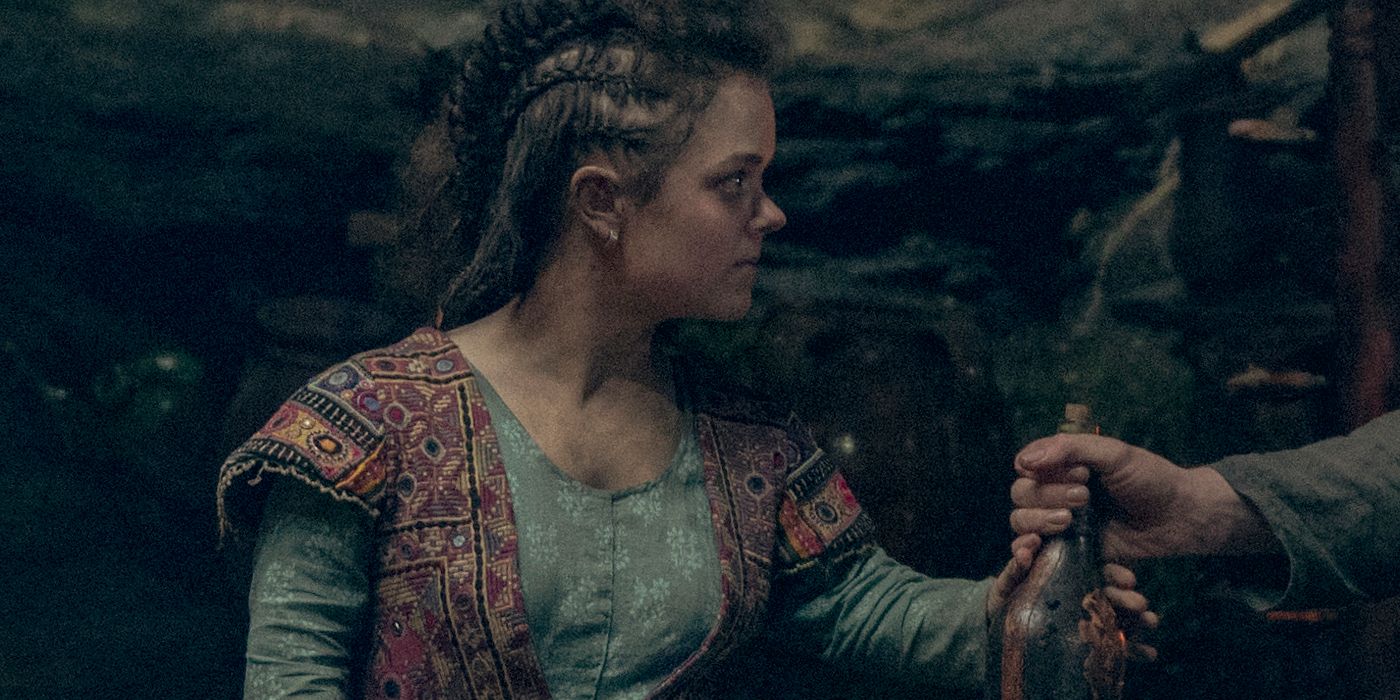Like Game of Thrones, The Witcher: Blood Origin draws upon elements of history to create its fictional universe, but it takes this further in one key respect, using a particular historical detail the HBO series largely avoided. Game of Thrones, of course, often pushed the boundaries of what could be shown on television, mostly in the service of immersing viewers in its quasi-medieval world. Part of this involved the invocation of terms and customs that were associated with the Middle Ages, especially in western Europe, as well as language and a particular manner of speaking that sounds distinctly pre-modern.
The Witcher: Blood Origin is not quite as committed to the appearance of quasi-historical authenticity as its counterpart on HBO, but it still clearly wants viewers to feel they are watching a series in that same vein. Netflix got its Blood Origin prequel very wrong, but that likely has little to do with the show’s attempts at using what it feels are historical bits and pieces. One such attempt is its use of older slang, which Game of Thrones mostly avoided.
Blood Origin Uses NSFW Slang Game Of Thrones Didn't
The term The Witcher: Blood Origin uses is the slang word “quim.” It stems from the 1600s, and is a vulgar expression referring to a woman’s genitalia. It subsequently became quite common in British slang, though it was always understood to be very offensive to both men and women. In The Witcher: Blood Origin, it is most notably used in the second episode in reference to Meldof, and immediately sets the series apart from its HBO competitor. However much Game of Thrones evoked the history of the real world, it didn’t go quite as far as the Netflix series in terms of its vocabulary.
The use of such language is very much in keeping with the blunt world depicted in both The Witcher and its prequel, The Witcher: Blood Origin. Like Game of Thrones, it is a brutal television drama filled with violence, murder, and mayhem, where life is often precarious even for warriors. The use of words like “quim” gives the impression that this is also a world with at least a faint connection to real history. At the same time, "quim" also has a very strange sound to it, which helps to make the series' fantasy world of taverns and squalor feel suitably slimy and dank.
Why Blood Origin Uses The Word Quim (& Game Of Thrones Didn't)
The appearance of the word “quim” in the universe of The Witcher: Blood Origin is an important moment because it helps to distinguish the series from fantasy worlds comparable to The Witcher like Game of Thrones. The word sounds strange to modern ears, particularly those of American viewers, who are less likely to be familiar with its historic use in the United Kingdom. Given the extent to which The Witcher is more straightforwardly fantastical than Game of Thrones, this vocabulary is another means by which it can set itself apart.
Like Game of Thrones, The Witcher: Blood Origin works to subvert the expectations and conventions of the fantasy genre. Each series leans into the darker, grimmer traditions of its genre, eschewing the nobler and more optimistic look and feel of other epics such as The Lord of the Rings and its prequel, The Rings of Power. However, Game of Thrones generally peddled more adult content than The Witcher: Blood Origin, and perhaps had access to more scandalous terms than "quim" when describing female anatomy in medieval slang.



